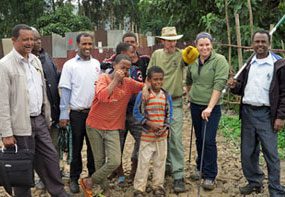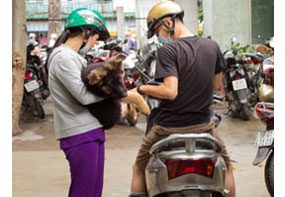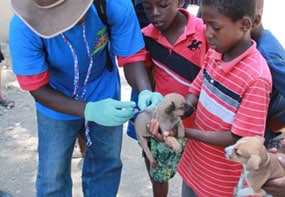CDC Works to Prevent Rabies around the World
Rabies experts from CDC’s Poxvirus and Rabies Branch (PRB) work in many countries where rabies is still endemic to help set up programs to control, track, and prevent this disease in people and animals. The main areas of assistance include:
- Defining the disease burden. Many countries do not actually know how many cases of rabies – whether in people or animals – occur there each year. Knowing these numbers is very important to properly direct resources and to target control and prevention efforts to the most affected areas.
- Training the workforce. In many resource-poor countries, there are not enough well-trained epidemiologists (people who study the burden of disease and how it spreads among people or animals), laboratory workers with expertise in rabies diagnostic testing, and medical and veterinary care providers with knowledge about proper rabies exposure evaluation and administration of human rabies post-exposure prophylaxis (PEP).
- Educating the public. Cultural beliefs and lack of awareness about rabies contribute significantly to the problem. People may not know about the disease and what to do when someone is bitten by a dog or other animal. They may not know about how to recognize the signs of rabies in a dog. They may not know what it is when a person is showing the signs of the disease. In some countries, people believe rabies is caused by a curse or spell.
See Examples of Our Work Around the World
Page last reviewed: September 23, 2021


